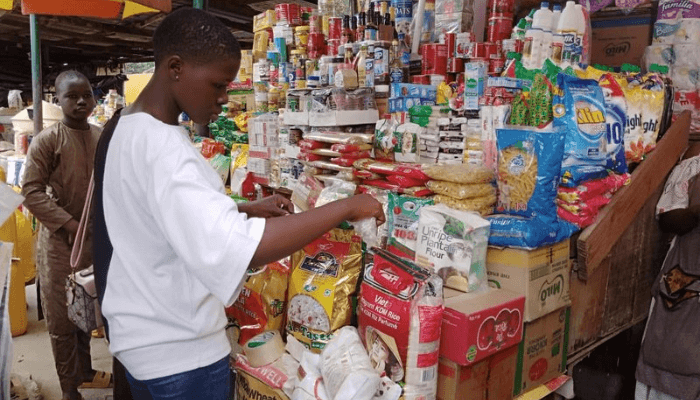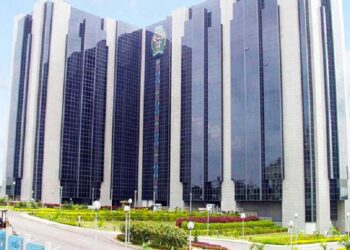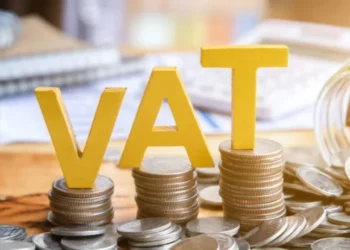The informal economy makes up a significant proportion of the African economy which is characterised largely by nano and micro businesses. Where, businesses and working conditions are characterised by small or undefined workplaces, unsafe and unhealthy working environments, unregulated, low levels of skills and productivity, low or irregular incomes, long working hours, and lack of access to information, markets, finance, training, and technology. The activities that occur outside the legal framework are considered informal. That said, millions of
Africans heck a living from the informal set-up daily and also vulnerable children. The COVID-19 pandemic consequences have also intensified the difficulties encountered by African workers and this has further increased vulnerable participation in the informal sector.
From context observation, the informal sector in Africa is larger than the formal sector in terms of employment opportunities and output year on year. In some cases, the informal economy is referred to as a shadow economy if associated with illegality and illicit activities such as internet scams, black markets, crime, production, smuggling of illegal drugs, and money laundering, as the case may be.
In many of African countries, from Uganda to Burundi, Liberia, Nigeria, Niger, Mozambique, and many others 80 to 90 per cent of people work in the informal economy informal which are mainly the nano and the micro businesses. Agreeably, across the continent, it is easy to notice this informality with street traders, artisans, vendors, nano and micro-businesses, commercial buses, tricycles, and motorbikes (Okada riders) domestic workers, market traders among others all operating informally, broadly speaking you can easily see informality all around the continent. The informal economy has witnessed a massive expansion in the last two decades in Nigeria and the root causes of these include elements relating to the economic context in the continent of Africa, decreasing levels of market regulation, weak policy frameworks, and socio-demographic drivers such as population growth, urbanisation, rise in unemployment, widening inequality between the rich and poor, low-level education, including poverty. The key driver of the informal economy, however, is that such businesses in the sector do not need registration with any relevant government agencies and it gives subsistence.
When workers cannot find opportunities in traditional wage employment, the need for subsistence demands they find work somewhere else. Most times the alternative is usually in the informal sector of the economy where there is no minimum wage and workers are unlikely to pay taxes, have no holiday rights or labour rights, and often work in dangerous conditions. Most time it is usually a struggle for them to access microcredit, they lack income security and stable employer-employee relationships. In the midst of all these, it only offers the most vulnerable and often uneducated Nigerians a foothold for survival. This expanded and large informal economy is perceived by the majority of the elite to be at the bottom rung of the economic system when in truth, they are the major drivers of the economic system because they are too large, important, and relevant to be ignored. For instance, it is unclear if the country has reliable data on the National Union of Road Transport Workers (NURTW) activities in the country or the volume of transactions in the Ladipo auto spare part market in Oshodi Lagos State and the popular Greater Kampala in Uganda with three visible clusters Katwe, Kasubi, and Masakamention to mention a few. These are visible informal business locations set up within the country with multi-million daily business turnover, yet the operators are unrecognised or uncaptured by policy markers or relevant authorities. This part of the economy is particularly large in Nigeria, with the International Monetary Fund (IMF) estimating it to constitute about 60 per cent of the entire Nigerian economy, yet not subject to full government regulations. Meanwhile, working in the sector is attractive due to the ease attached to operations as a result of the absence of a bureaucratic regulatory framework, and little or no formal educational requirements.
There are multiple perspectives on the informal economy, some associate it with lost revenue, unfair competition, low productivity, human rights abuses, and environmental degradation; while others associate it with entrepreneurship, flexibility, and resilience. Overall, the informal economy is enduring; but suitable regulations and policies are required to improve the sector and introduce formalisation. The decision for these businesses to formalise depends on the benefits that are derived from formalisation over the risks of remaining in the informal economy. If the former outweighs the latter, only then does formalisation seem like a viable option to the operators.
Clearly, there is a need for the government to embark on a series of measures, interventions, and support to encourage the formalisation of these businesses to sustain economic growth and development. As mentioned earlier, this informal sector is too large and important to be ignored, concerted effort to identify and protect them is crucial for sustainability and economic development.
In recent times inflationary pressures and the Novel Coronavirus (COVID-19) pandemic have negatively impacted these informal businesses greatly. Because they rely on daily income and most of them can rarely “work from home,” so the harsh reality is that most of these businesses need government support and adequate regulations. Therefore the current state of nano and micro businesses provides a good avenue for the governments of many of these African countries to have mass registration and identification and equally reach out to them through social interventions and palliative.
Besides, the International Monetary Fund (IMF) is urging national statistical agencies to gather information on the informal economy to help in policy formulation and for gathering reliable data for economic planning. In this context, careful attention must be paid to the informal economy, and policy solutions need to be in place to encourage and induce their formalisation. These suggestions, if efficiently considered might, in turn, reduce the size of the informal economy in the country. Good luck!
How may you obtain advice or further information on the article?
Dr. Timi Olubiyi, an Entrepreneurship & Business Management expert with a Ph.D. in Business Administration from Babcock University, Nigeria. A prolific investment coach, adviser, author, seasoned scholar, Member of the Institute of Directors, Chartered Member of the Chartered Institute for Securities & Investment (CISI), and Securities & Exchange Commission (SEC) registered capital market operator. He can be reached on the Twitter handle @drtimiolubiyi and via email: drtimiolubiyi@gmail.com, for any questions, reactions, and comments. The opinions expressed in this article are those of the author- Dr Timi Olubiyi and do not necessarily reflect the opinions of others.




